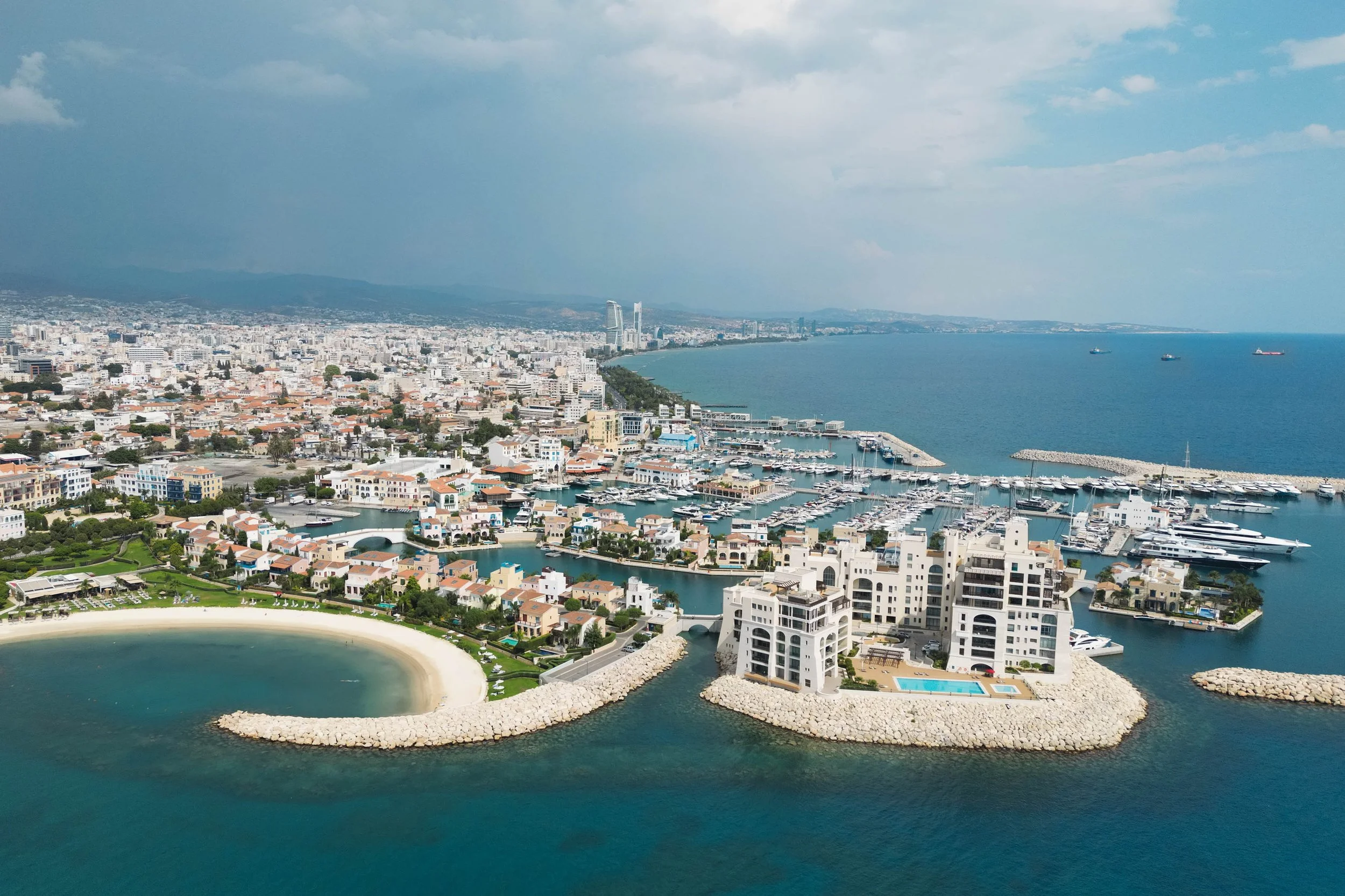Cyprus ignores Russian atrocities, Western sanctions to shield vast wealth of Putin allies
Neil Weinberg (ICIJ), translation and adaption: Ana Čelar (Oštro)
—
The ICIJ-led investigation Cyprus Confidential reveals how the EU member state powered the Kremlin’s financial machine, moving vast sums for oligarchs, even after Russia’s 2022 Ukraine invasion
Ilustration: ICIJ, Ben King
The Mediterranean island of Cyprus has long been a geopolitical crossroads – coveted by empires and serving as a convergence point for diverse cultures, religions, and financial interests. Over the years, a substantial influx of foreign capital, predominantly from Russia, has streamed into the island.
The International Consortium of Investigative Journalists (ICIJ), in collaboration with Paper Trail Media and 67 media partners, including Oštro, has unveiled the substantial role played by this island in facilitating illicit financial activities for the autocratic regime of Russian President Vladimir Putin and other oppressive leaders.
Cyprus Confidential investigation, the product of eight months of reporting, scrutinized 3,6 million leaked documents from six Cypriot financial service providers; ConnectedSky, Cypcodirect, DJC Accountants, Kallias & Associates, MeritKapital, and MeritServus, as well as a Latvian company, Dataset SIA. The leaked records revealed that 44 politically exposed persons, which include sanctioned Russian billionaires, have had ties to Cyprus.
Financial ties with Cyprus have undoubtedly been a lucrative endeavor for various entities. The beneficiaries don't only include oligarchs like Roman Abramovich and Alexey Mordashov, but also Syrian genocidal rulers, lawyers and even one German journalist.
These leaked internal records, spanning from the mid-1990s to April 2022, include confidential background checks, organizational charts, financial statements, bank account applications, and email messages. They provide a comprehensive insight into the financial system that has helped to empower some of the West’s most determined foes.
Cyprus panorama view: aerial shot. Foto: ICIJ
Under the Russian Influence
Cyprus Confidential exposes the involvement of the highest levels of Cyprus government and finance in dubious financial practices. The "Cyprus model" relies on the financial sector with lax EU financial disclosure laws, a lenient central bank, and over $200 billion in Russian investments, granting significant influence to oligarchs.
Those who have benefited from Cypriot lax regulations, as revealed by the investigation, form a web of influential individuals engaged in ethically questionable activities.
The documents expose a relationship between Russian oligarch Roman Abramovich and Cypriot corporate service provider MeritServus, accused by the UK of aiding sanctioned Russian oligarchs.
The global investigation also exposes how PwC (formerly PricewaterhouseCoopers), a global accounting giant, utilized its Cyprus office, comprising 1,100 employees, to assist Putin allies during Russia's invasion of Ukraine. PwC also facilitated the transfer of a $1.4 billion investment for Russian businessman Alexey Mordashov after Western sanctions.
Anti-democratic Actors
Examination further uncovers how Syria's leaders attempted to evade the United States’ strict ban on exports to Syria. New findings expose detailed discussions between Syrian state-owned oil company and a Cyprus-registered intermediary about purchasing drilling equipment made by the Houston-based manufacturer NOV Inc.
Cyprus Confidential also reveals that German journalist Hubert Seipel, known for his sympathetic portrayals of Vladimir Putin, reportedly received about $700,000 in 2018 and 2019 as "sponsorship" from a shell company linked to sanctioned Russian oligarch Alexey Mordashov.
Additionally, documents include transactions made to a lawyer who sent spyware to oppressive regimes and a sanctioned Russian oligarch financing a Holocaust movie alongside European taxpayers.
Investigating Croatia and Slovenia
In Croatia, Oštro’s journalists found that sanctioned Russian oligarch Vasily Anisimov was granted a Croatian passport in 2003 and was using it in his offshore business endeavors since at least 2018.
Journalists have also uncovered connections between the football club Hajduk Split and one offshore company.
Additionally, journalists found out that Mordashov’s company was contracted by the Croatian Tourist Board to promote Croatia in the Ukrainian and Russian market.
In Slovenia, journalists investigated an 85 million euro residential project in Ljubljana. At the beginning of the war in Ukraine, the Russian investor officially withdrew from the project, and he was replaced by a Polish and a Slovenian, but this was apparently just a maneuver to cover up the traces of Russian financing.


